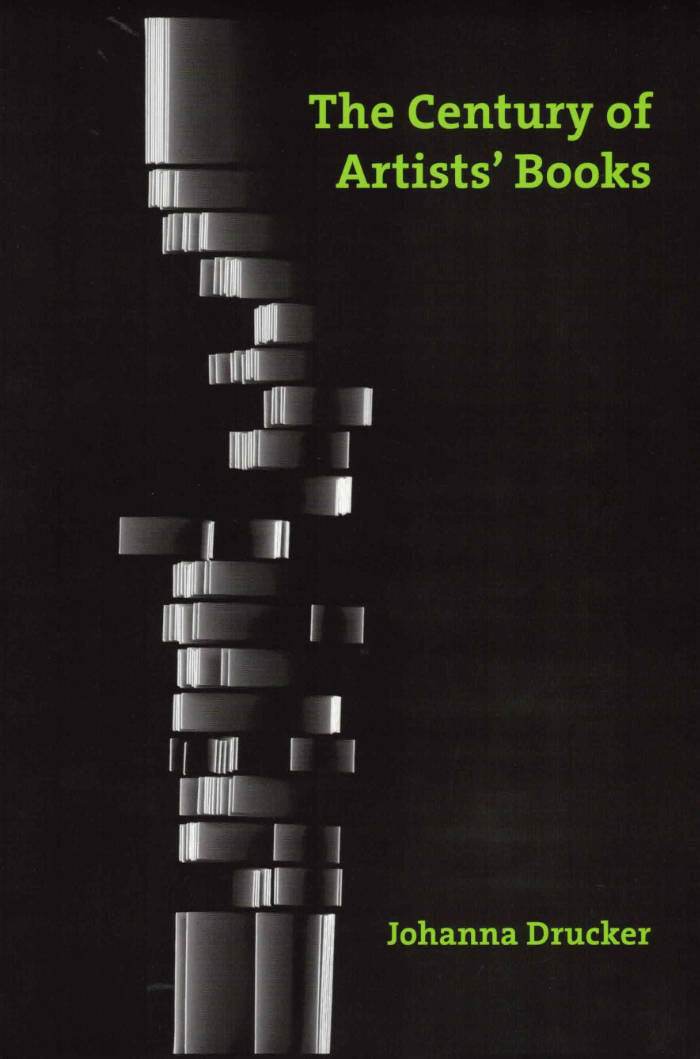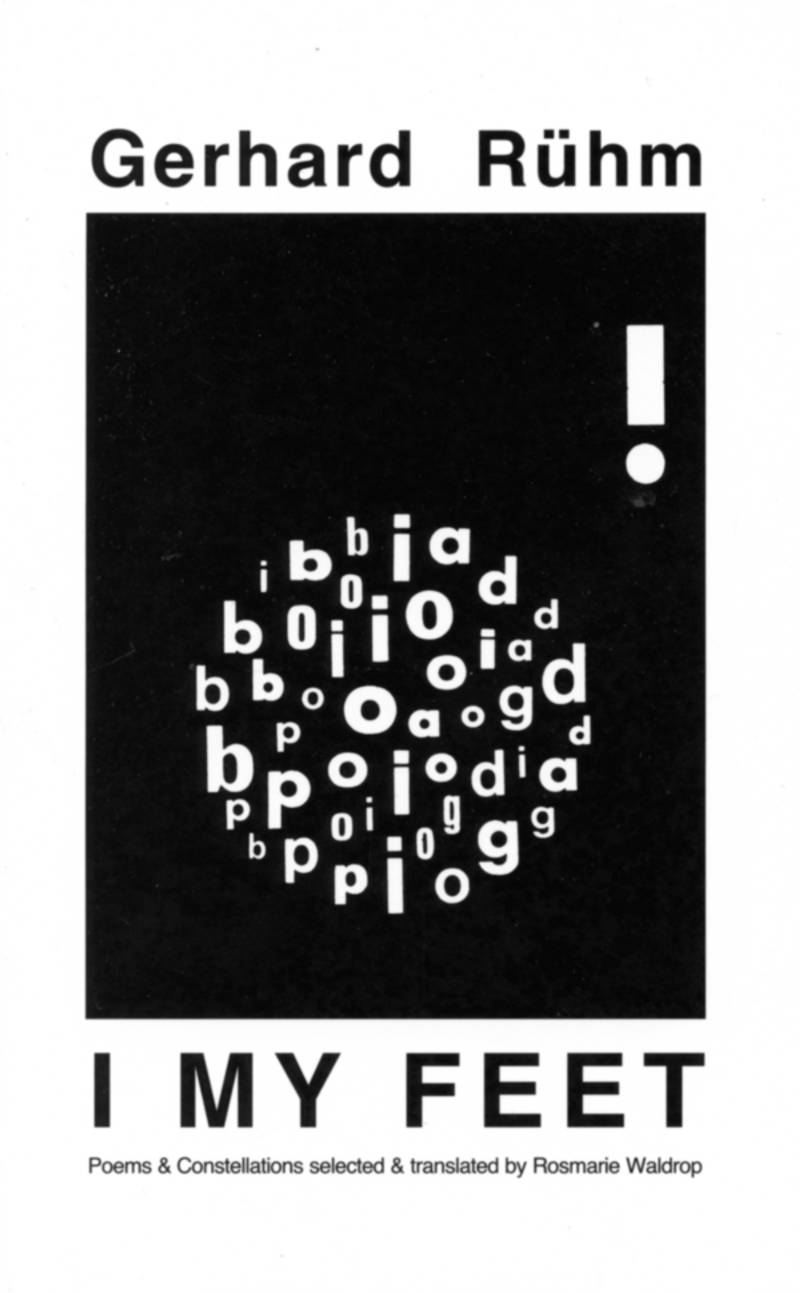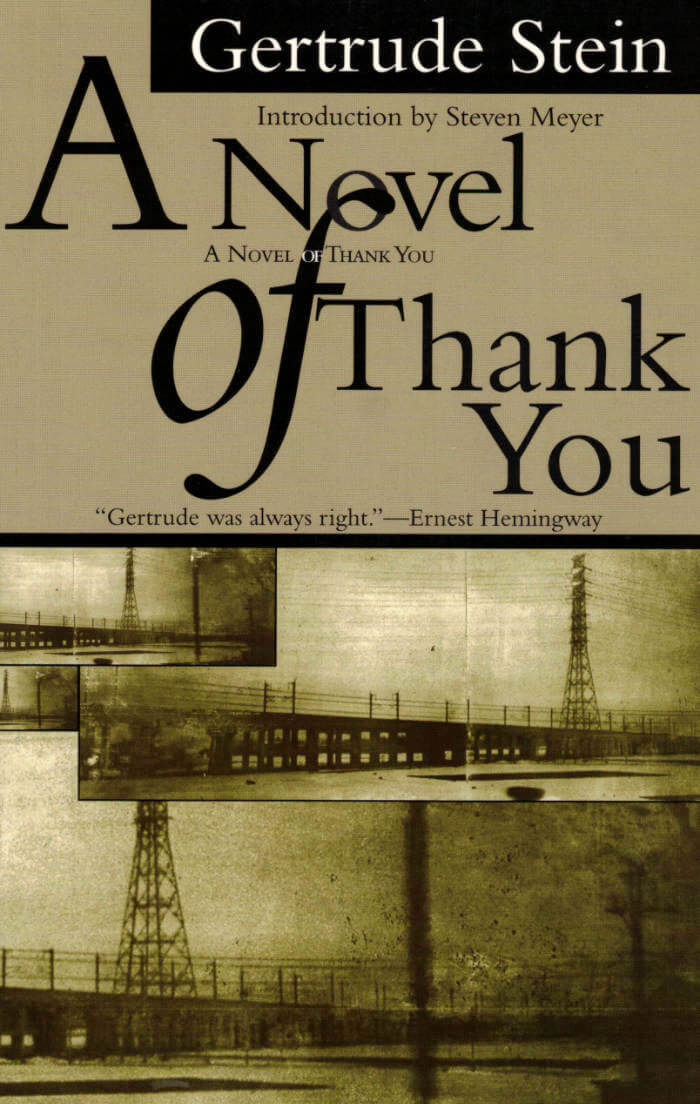Books
Books
published in 2004

The Century of Artists' Books
Johanna Drucker's The Century of Artists' Books is the seminal full-length study of the development of artists' books as a twentieth-century art form. By situating artists' books within the context of mainstream developments in the visual arts, Drucker raises critical and theoretical issues as well as providing a historical overview of the medium. Within its pages, she explores more than two hundred individual books in relation to their structure, form, and conceptualization. This latest edition of the book features a new preface by Drucker and includes an introduction by New York Times senior art critic Holland Cotter.

I My Feet
Gerhard Rühm, Rosmarie Waldrop
Gerhard Rühm is a radical experimenter, a restless explorer of traditions and genres, atomizing their elements in order to recompose them with conceptual precision and a multiplicity of compositional techniques. He has worked with music and visual art, but basically the world is language for Rühm, the dictionary its body, and the alphabet its backbone.
Gerhard Rühm was born in Vienna in 1930. He began by studying composition and Oriental music, but came to devote most of his energy to literature, esp. concrete poetry. His aim has been nothing less than making language an aesthetic medium on a par with music and visual art.
Rühm is also known for his editions of Baroque and Expressionist poets. His prizes include the “Grosse Österreichische Staatspreis” (1991) and the “Hörspielpreis der Kriegsblinden” (1983). From 1972-95 he taught at the Hamburg Academy of Fine Arts. He now lives in Cologne.
“Orgy, for R. means semantic excess and turbulence, the coitus of words outside their usual use.”—Mittelbayerische Zeitung
“The almost constructivist compositions derive their solidity from the musical use of rhyme, assonance , alliteration and rhythmic figures, and not least through song- and sonata elements.” — Klaus Peter Dencker, Nürnberger Nachrichten
Rosmarie Waldrop's most recent books of poetry are Blindsight (New Directions) and Love, Like Pronouns (Omnidawn). She has translated Edmond Jabès (her memoir, Lavish Absence: Recalling and Rereading Edmond Jabès was published by Wesleyan University Press in 2002), Jacques Roubaud, Emmanuel Hocquard, and, from the German, Friederike Mayröcker, Elke Erb, Oskar Pastior.

A Novel of Thank You
This is the first paperback edition of one of Stein's most revealing novels. Written in 1925-26 (but not published until 1958), it is Stein's midcareer assessment of herself, her writing, and her relationships, composed in the unique style for which she is celebrated.
In place of a traditional narrative, Stein explores the nature of narrative, its possibilities, the various genres (historical novels, the novel of manners, adventure stories) available to the writer, the conventions of novel-writing, and the novelist's relation to her materials. In a sense, the novel is about preparing a novel (the subject of chap. 50), about everything that goes through a writer's head as she begins to write.
Mixed in with her meditations on writing are daily events in her marriage to Alice B. Toklas, visits from friends - including such notable figures of the period as Josephine Baker, Virgil Thomson, Rene Crevel, and a number of expatriate American writers and artists - travels in and around France, memories of the past, inquiries into names and the nature of identity, and virtually anything else that occurs to her.
As she writes at one point, It can easily be remembered that a novel is everything, so everything of interest to Stein goes into her preparations for the novel that is A Novel of Thank You.

The Way of Love
The Way of Love asks the question: How can we love each other? Here Luce Irigaray, one of the world's foremost philosophers, presents an extraordinary exploration of desire and the human heart. If Western philosophy has claimed to be a love of wisdom, it has forgotten to become a wisdom of love. We still lack words, gestures, ways of doing or thinking to approach one another as humans, to enter into dialogue, to build a world where we can live together.
Luce Irigaray is Director of Research in Philosophy at the Centre National de la Recherche Scientifique, Paris. A doctor of philosophy, Luce Irigaray is also trained in linguistics, philology, psychology and psychoanalysis. Now acknowledged as a key influential thinker of our times, her work focuses on the culture of two subjects, masculine and feminine - particularly through the liberation of a feminine subjectivity - something she explores in a range of literary forms, from the philosophical to the scientific, the political and the poetic.
Published 2004.